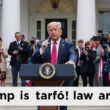A comprehensive new study by the Ifo Institute and Econpol Europe has revealed a significant transfer of the burden of local business taxes onto property owners, raising concerns about the broader economic impact of municipal tax policies and potentially hindering investment. The research, based on an extensive dataset of over 35 million property listings and 17,000 municipal business tax reforms between 2008 and 2019, demonstrates that property owners absorb approximately 26% of the tax burden directly.
The study highlights a phenomenon where businesses, initially shouldering the impact of increased local business taxes, subsequently pass portions of that cost onto property owners by adjusting production decisions and relocating – effectively shifting the financial strain. According to co-author Pascal Zamorski, “Following a local tax increase, companies adapt their production choices, transferring part of the burden to other actors, primarily property owners.
The findings suggest a dampening effect of higher business taxes on property values. A one percentage point increase in the tax rate correlates with an average decline of three percent in commercial property prices within four years. Residential property values also experience a comparatively weaker performance, decreasing by one to two percent. Wage levels are also negatively impacted, falling by approximately 0.7 percent.
Ifo researcher David Gstrein, also a co-author of the study, emphasized the broader implications: “The business tax primarily burdens entrepreneurs and property owners. However, the substantial price adjustments also point to the considerable efficiency costs associated with corporate taxes”. These costs manifest in reduced investment and, potentially, business relocations, ultimately impacting regional economic growth.
The sheer scale of the data analyzed allows for a granular observation of how local tax increases ripple through the economy, affecting not only businesses and property owners but also labor markets. The findings are expected to fuel debate regarding the optimal structure of local tax systems and the unintended consequences of municipal tax policies on property investment and overall economic performance. They underscore the need for policymakers to carefully consider the distributional effects and potentially distorting impacts of municipal business taxes before implementing changes.





